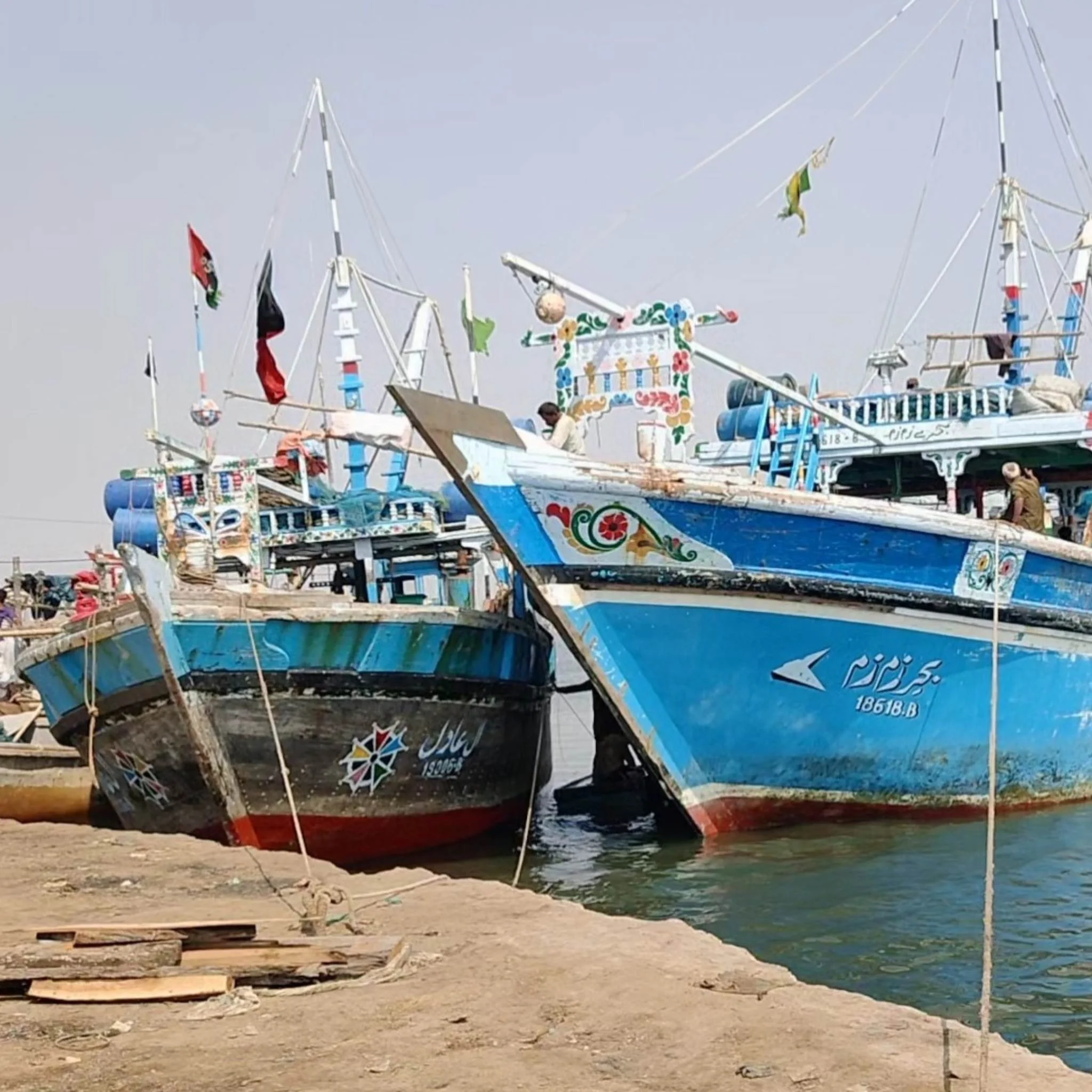In the vast expanse of Sindh, Pakistan, a heart-wrenching phenomenon has been silently unfolding – climate migration. The region's vulnerability to climate-related disasters, from devastating floods to monsoon rains and cyclones, has sparked an exodus of families searching for survival and a glimmer of hope for a better future.
Zahid Hussain, once the proud owner of 700 acres of fertile agricultural land, is among those who have borne the brunt of these relentless climate-related disasters. The once-prosperous land has now become barren and unyielding, leaving him with no choice but to make the painful decision to migrate to another area. Now residing in Baghan city of Thatta, Zahid speaks of the constant challenges they face, from hurricanes to floods and heavy rains. "Our very life is in danger," he says.
The coastal regions of Sindh tell a similar tale of despair as climate change takes its toll on fishing communities. Abu Bakar and Abdul Sattar, weathered fishermen with decades of experience, once thrived on the abundant waters of Indus Delta and Manchar Lake, respectively. Now, their lives are emblematic of the heartrending reality of climate migration.
Abu Bakar, who once called the thriving Indus delta home, vividly remembers the days when fishing was not just a livelihood, but a cherished way of life. As the sea encroached upon their delta, eroding the land and resources they relied on, Abu Bakar's life took an agonizing turn. Forced to leave behind his ancestral home, cherished memories, and a way of life that had been passed down through generations, he embarked on a journey of uncertainty and upheaval.
He now ekes out a meager existence by fishing in unfamiliar waters in Ibrahim Hydari, another coastal area of Sindh. The struggle for survival is palpable as he reflects on the challenges faced by coastal communities due to climate change. Rising sea levels, exacerbated by global warming, have thrust them into a precarious situation, with no safe harbor in sight. The loss of their once-thriving ecosystem not only affects their livelihoods, but also disrupts the cultural fabric that has bound them to the land and the sea for centuries.
"The verdant delta crumbled before our eyes; everything we had has been engulfed by it. Due to the sea water, the water of the small rivers became poisonous, fish became scarce and our livelihood was lost," Abu Bakar laments.
He adds: “For this reason, many fishermen including me came to Ibrahim Hydari in Karachi. There is only enough employment here that we are scraping by and can manage two simple meals a day. But even here, the fishing situation is difficult. Poppets and jellyfish are abundant, but commercially lucrative fish are found only occasionally.”
Similarly, the picturesque Manchar Lake was a source of joy and prosperity for Abdul Sattar and his fellow fishermen for a lifetime. He reminisces about the days when the largest freshwater lake was teeming with life. A source of joy and prosperity for the fishing community, the lake was their lifeline, providing abundant fish and sustenance. However, environmental changes have turned the freshwater lake toxic, decimating its ecosystem. With floods adding to their woes, the community's survival became an uphill battle. Facing ecological devastation, Abdul Sattar and his community fled their land, leaving behind a once-thriving way of life. Now, displaced and uprooted, they face the challenges of adapting to new surroundings and navigating an uncertain future.
"We don't know what will happen to us. Manchhar Lake, which used to support thousands of fishermen, is now struggling to survive like us. At Manchhar lake we saw floods thrice which destroyed all our goths (villages). However, we did not decide to go to any other city. When the toxic water from the MNV drain was released into the lake, it affected all aquatic life. Fish and clean drinking water became scarce. Similarly, the lake became completely toxic, so we decided to come to Karachi.” He added: "Our income is so depleted our families barely have enough to eat. We have lived our lives doing the same work, living in a certain way, but we do not know what will be the future of our children."
Zahid Hussain, Abu Bakar and Abdul Sattar's stories are just a few among countless tales of climate migration unfolding across the globe. Climate change has emerged as a formidable force driving millions of people away from their homes, disrupting their livelihoods, and shattering their communities. As world leaders grapple with mitigating climate change's impact, the plight of these fishing communities serves as a stark reminder of the urgent need for sustainable policies and a global commitment to safeguard vulnerable populations.
Rahmat Tunio is a freelance multimedia journalist based in Sindh. His work has been published in The Guardian, The Diplomat, Dawn, Independent Urdu, Lok Sujag, among others. He can be reached at @RehmatTunio on Twitter or [email protected].


